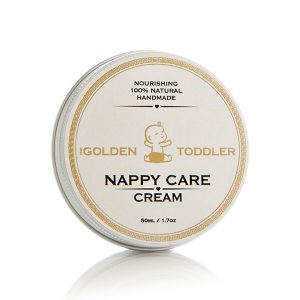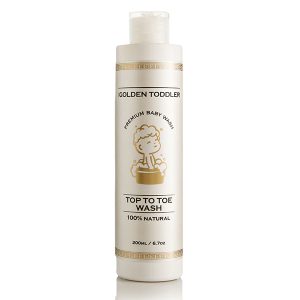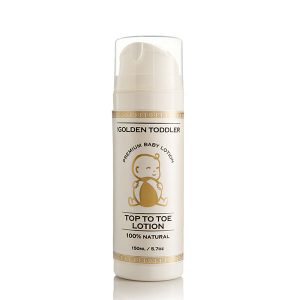After a fun day spent at the beach, taking care of your toddler’s skin is key to protecting its health and beauty. But did you know that children’s skin has some special characteristics that make it sensitive to the sun, sand and other environmental factors?

Here are some interesting facts about how seawater affects children’s skin:
1. Hydration: Sea water has natural moisturizing properties. It contains minerals such as magnesium, calcium and potassium that can retain moisture in the skin, making it soft and hydrated.
2. Cleansing: Sea water has the ability to cleanse the skin of impurities and excess oil. It contains sea salt that has antibacterial properties, i.e. helps remove bacteria from the skin. However, it is important to note that prolonged exposure to seawater can dry out the skin, so in such a case the skin should be properly hydrated in order to maintain its natural balance.
3. Healing minerals: Sea water is rich in minerals. For example, magnesium and sulfur help calm inflammatory skin conditions such as eczema, as well as repair skin and reduce irritation.
4. Exfoliating: Sand and tiny seashells on the beach can act as a natural exfoliant for the skin. When children run on sand or play in the water, the fine sand particles remove dead cells from the surface of the skin, making it smooth and fresh. Of course, it is important to thoroughly wash the skin after such activities and hydrate it.
5. General refreshing effect: Many parents notice that their toddlers look refreshed and healthy after being at the beach. This is due to a combination of factors such as sunlight, seawater, physical activity and fresh air. All these components together can provide the skin and the entire body with a relaxing and refreshing effect.
However, it is important to remember that children’s skin can be sensitive to seawater. Some little ones may experience reactions such as dryness, irritation or itching after exposure to seawater.
Children’s skin is delicate and thinner compared to adult skin. Its protective barrier is still developing, which is why it is particularly vulnerable to damage from excessive exposure to sunlight, sand, wind and dust.
The physiology of children’s skin has its own specificities. For example, children’s skin has a higher absorption capacity than adult skin. This means that anything we put on a child’s skin can penetrate their system more quickly, which makes choosing natural products even more important. Choosing natural cosmetics ensures that we are applying mild ingredients to children’s skin that do not contain aggressive chemicals, but are rich in nutrients that are easily absorbed by the skin.
Natural cosmetics do not contain artificial fragrances, colors and preservatives that can cause allergic reactions in children. Instead, natural fragrances from plants and essential oils are used, which not only smell lovely but also have therapeutic benefits for the skin and senses. It is important to emphasize that each child may have individual reactions to certain ingredients. Before you start using new products, it’s always a good idea to do a test on a small area of skin to check for any negative reactions.
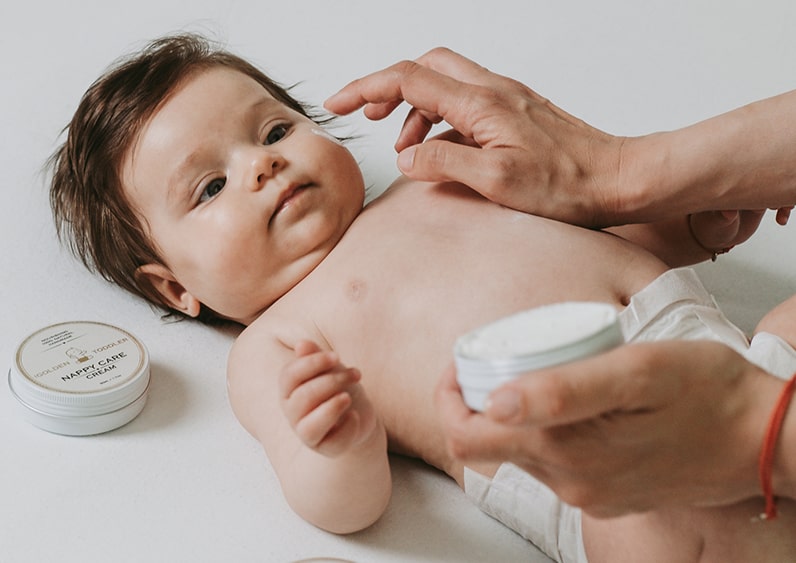
So, the care of children’s skin after a day spent on the beach requires special attention and the selection of natural cosmetics. From sun protection to sand removal and hydration, natural products provide gentle and effective care, keeping your child’s sensitive skin healthy, hydrated and protected.
When you return from the beach, it is important to first wash your skin in the shower to remove the remaining salt and sand. Mild shower gels or soaps based on natural ingredients can be an excellent choice as they will not further dry out the skin. Natural hypoallergenic soaps are an ideal solution, especially for children who are prone to allergies and frequent irritations. These soaps are very mild, without fragrance and other additives that would further damage the already sensitive skin. Natural washes are also a great solution, as they are enriched with oils, plant extracts and essential oils that have a therapeutic and relaxing effect. Be careful not to use excessively hot water, as it can further dry out the skin. Instead, choose warm water to help open pores and remove impurities.
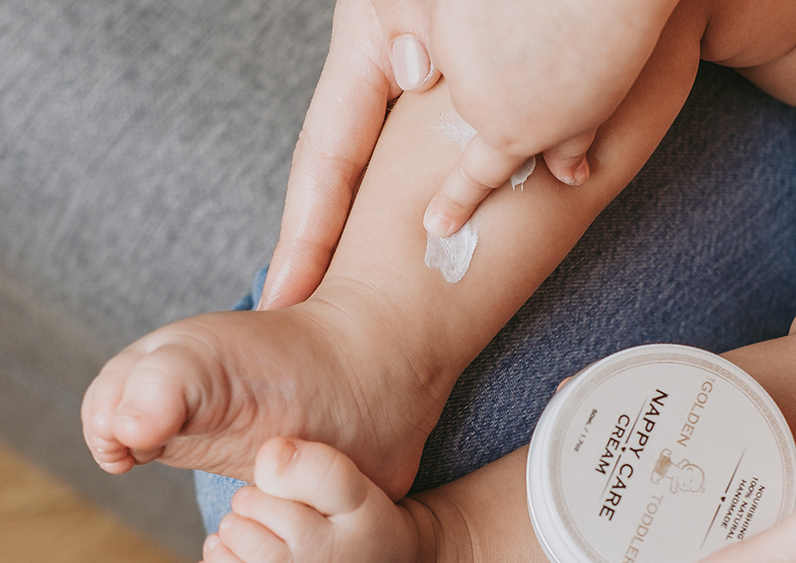
After showering, it’s time to hydrate the skin. Choose a rich and nourishing moisturizer or lotion that will replenish the skin’s moisture and keep it soft and protected. Products based on natural oils such as almond oil or shea butter can be extremely gentle and moisturizing. Apply a moisturizing product in the morning and evening, especially on dry or irritated skin.
Another interesting fact is that some natural ingredients have additional benefits for the care of children’s skin after the beach. For example, almond oil is rich in vitamin E, which has antioxidant properties and helps regenerate the skin. This oil also provides deep hydration, making the skin soft and smooth. Jojoba oil is another ingredient that is popular in natural cosmetics because of its similarity to natural oils which the skin produces. It helps maintain the skin’s natural balance, making it healthy and nourished.
If your child has sensitive skin prone to irritation, calendula is a herb to keep in mind. Calendula extract has soothing and anti-inflammatory properties, making it ideal for soothing the skin after exposure to the sun and seawater. Calendula is also known for its ability to soothe skin irritations and redness, providing instant relief.
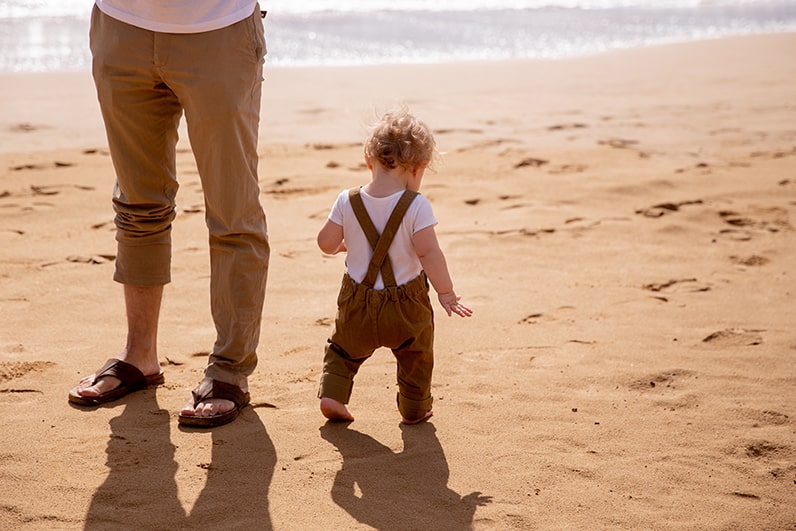
Along with proper care of a child’s skin with natural cosmetics, do not forget about other aspects. Teach your child to drink enough water to hydrate from within, because skin hydration starts from the inside. Water-rich fruits and vegetables, such as watermelon, cucumbers, and cantaloupe, can also be delicious and healthy additions to your post-beach diet.
The use of natural products provides healthy and gentle care while preserving and respecting nature. Enjoy these moments with your child and create a routine that will contribute to the health and beauty of the child’s skin in a natural and responsible way.
